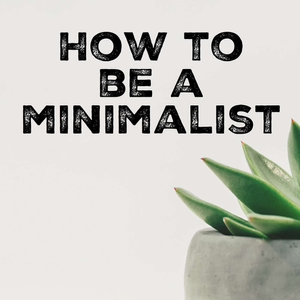
Could lawsuits meant to curb disinformation hurt press freedom?
06/29/23 • 30 min
Libel laws and the First Amendment in the United States are meant to hit a sweet spot — protecting reputations and facts while also affording journalists the freedom to publish unflattering information about powerful people that the public needs to know. But disinformation is increasingly threatening that balance.
In this episode, law professor RonNell Andersen Jones explains what could be at risk. “If it's too easy for somebody to sue for defamation over a falsehood, then powerful people will hold that over everybody's head and threaten to sue their critics and will silence a lot of conversation that we ought to be having," she said.
Jones is a Distinguished Professor and Teitelbaum Chair in Law at the University of Utah and an Affiliated Fellow at Yale Law School's Information Society Project. A former newspaper reporter and editor, Jones is a First Amendment scholar who now teaches, researches and writes on legal issues affecting the press and on the intersection between media and the courts.
Listen to the conversation to learn more.
Additional Reading:
- The "Actual Malice" Standard Explained, Protect Democracy
- Supreme Court Puts First Amendment Limits on Laws Banning Online Threats, The New York Times
- The Multibillion Dollar Defamation Lawsuits Against Fox News, Explained, Vox
- Dominion CEO Predicts 'Business Ultimately Goes to Zero' Because of 2020 Election Lies, TIME.com
Is that a fact? is a production of the News Literacy Project, a nonpartisan education nonprofit building a national movement to create a more news-literate America. Our host is Darragh Worland, our producer is Mike Webb, our editor is Timothy Kramer, and our theme music is by Eryn Busch.
Libel laws and the First Amendment in the United States are meant to hit a sweet spot — protecting reputations and facts while also affording journalists the freedom to publish unflattering information about powerful people that the public needs to know. But disinformation is increasingly threatening that balance.
In this episode, law professor RonNell Andersen Jones explains what could be at risk. “If it's too easy for somebody to sue for defamation over a falsehood, then powerful people will hold that over everybody's head and threaten to sue their critics and will silence a lot of conversation that we ought to be having," she said.
Jones is a Distinguished Professor and Teitelbaum Chair in Law at the University of Utah and an Affiliated Fellow at Yale Law School's Information Society Project. A former newspaper reporter and editor, Jones is a First Amendment scholar who now teaches, researches and writes on legal issues affecting the press and on the intersection between media and the courts.
Listen to the conversation to learn more.
Additional Reading:
- The "Actual Malice" Standard Explained, Protect Democracy
- Supreme Court Puts First Amendment Limits on Laws Banning Online Threats, The New York Times
- The Multibillion Dollar Defamation Lawsuits Against Fox News, Explained, Vox
- Dominion CEO Predicts 'Business Ultimately Goes to Zero' Because of 2020 Election Lies, TIME.com
Is that a fact? is a production of the News Literacy Project, a nonpartisan education nonprofit building a national movement to create a more news-literate America. Our host is Darragh Worland, our producer is Mike Webb, our editor is Timothy Kramer, and our theme music is by Eryn Busch.
Previous Episode

Opinion creep: How facts lost ground in the battle for our attention
Have you ever scratched your head when reading an article or watching the news and wondered if you were getting facts or opinion? If so, you’re not alone. News organizations have not made it easy for consumers to differentiate between news and the views of an individual or media outlet.
Tom Rosenstiel, professor at the University of Maryland Philip Merrill College of Journalism and co-author of The Elements of Journalism, explained why there is confusion in today’s podcast episode. “The purpose of news is to inspire conversation, to inspire people to consider public life, to consider their community. Editorials are there to further inspire public consideration. Here's what we think. We've read many stories, we've talked to our reporters, we've considered this.”
Rosenstiel also explained how the rise of 24-hour cable TV has tilted the media world off it’s “just the facts” axis, particularly after 1996, when Fox and MSNBC entered the fray. To compete with CNN, which had a larger reporting staff, they filled their time slots with talk shows that provided a slanted view of the news.
Listen and find out more.
Additional Reading:
- The New Ethics of Journalism, edited by Kelly McBride and Tom Rosenstiel
- Blur: How to know what's true in the age of information overload, by Bill Kovach and Tom Rosenstiel
- We interrupt this newscast: How to improve local news and win ratings, too, by Todd L. Dante Chinni, Walter Dean, Belt, Marion Just, Atiba Pertilla
Is that a fact? is a production of the News Literacy Project, a nonpartisan education nonprofit building a national movement to create a more news-literate America. Our host is Darragh Worland, our producer is Mike Webb, our editor is Timothy Kramer, and our theme music is by Eryn Busch.
Next Episode

Beyond hot takes: Reporting on a warming planet
Things have been heating up — literally — since Sabrina Shankman, our latest podcast guest, began covering climate change a decade ago. The scientific community has presented indisputable evidence that climate change is the result of carbon emissions from human activity. News organizations have committed more resources to covering the complex topic. And climate deniers and the misinformation they spread have evolved along with the conversation.
Shankman, who covers climate change at The Boston Globe, addresses these topics and more in this podcast episode.
The science proving climate change is real has been around for decades, but it’s taken society and the news media a while to catch up. But with wildfires, flooding, and other extreme weather events on the rise, the climate crisis has come knocking on our doors.
“When I was first a climate change reporter, I was covering the Arctic because it was a way to tell the story of climate change in the place where it was happening. Now, I can tell the story in Boston because it's happening in Boston, it's happening everywhere."
But as with any global issue that impacts economies, governments and society, misinformation and disinformation are part of the story. Getting reliable information from credible sources is key.
“You need to be interrogating the information that you're receiving. You have to say, ‘Okay, well maybe this information seems valid, but it's coming with a perspective. What are some other perspectives?’”
Listen in to find out why climate change isn’t just a big story, it’s the story.
Additional reading:
- ‘Nothing like this has ever happened before’: The world’s oceans are at record-high temps, The Boston Globe, Sabrina Shankman
- Mass Die-Off of Puffins Raises More Fears About Arctic’s Warming Climate, Inside Climate News, Sabrina Shankman
- Fumes in South Portland, Inside Climate News, Sabrina Shankman
Is that a fact? is a production of the News Literacy Project, a nonpartisan education nonprofit building a national movement to create a more news-literate America. Our host is Darragh Worland, our producer is Mike Webb, our editor is Timothy Kramer, and our theme music is by Eryn Busch.
If you like this episode you’ll love
Episode Comments
Featured in these lists
Generate a badge
Get a badge for your website that links back to this episode
<a href="https://goodpods.com/podcasts/is-that-a-fact-152624/could-lawsuits-meant-to-curb-disinformation-hurt-press-freedom-31165917"> <img src="https://storage.googleapis.com/goodpods-images-bucket/badges/generic-badge-1.svg" alt="listen to could lawsuits meant to curb disinformation hurt press freedom? on goodpods" style="width: 225px" /> </a>
Copy





